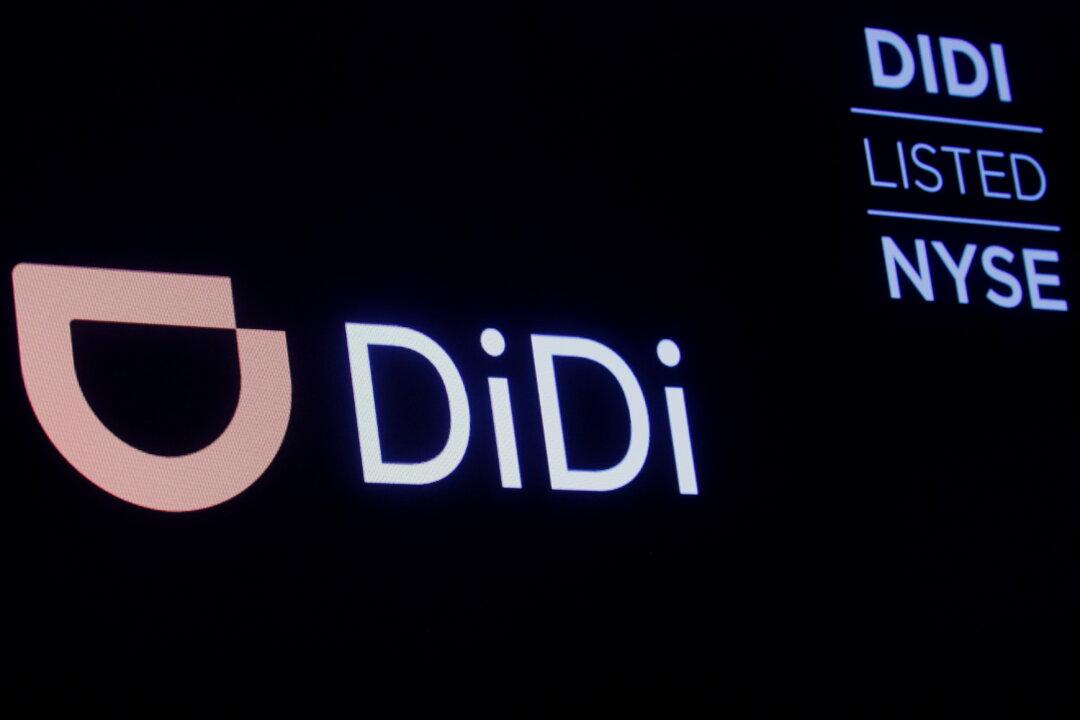TORONTO—Several hedge funds may have been bruised by bets on Didi Global Inc., filings showed after the shares tumbled since the Chinese ride-hailing company announced plans to withdraw from the New York Stock Exchange.
Didi’s shares have tumbled 56.8 percent from their June 30 IPO price. The slide accelerated after the company said on Friday it planned to delist from the New York Stock Exchange and pursue a listing in Hong Kong, bending to Chinese regulators angered by its U.S. debut.





